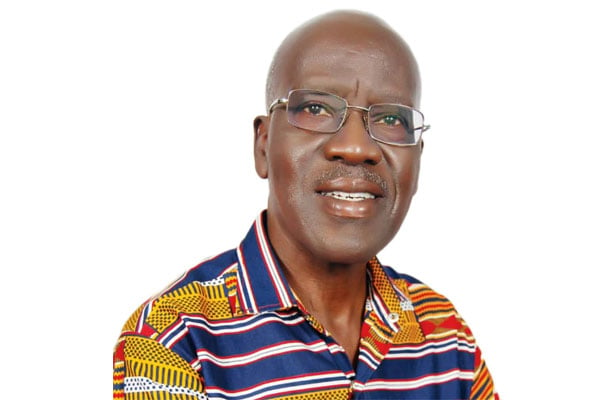A Sunday sermon of only three words

Prof Timothy Wangusa
What you need to know:
- Right inside his sermon, he says that he is going to tell us something that is not written in the Bible, but which has come down to us as part of a body of knowledge called the tradition of the elders.
If I remember well, it was in the year 1953 (when I was in P4) that I first heard of an entire church sermon comprising only three words! And this was during a Sunday sermon of the usual length of not less than an hour at Native Anglican Church (NAC) Bupoto parish church, the parent church of our school that we pupils of Bupoto Primary School had to attend every Sunday and on key days in the Christian calendar, such as Palm Sunday and Easter. That particular sermon (containing the three-word sermon) was preached by the parish priest at the time, Rev Wakadaala from northern Masaabaland.
Right inside his sermon, he says that he is going to tell us something that is not written in the Bible, but which has come down to us as part of a body of knowledge called the tradition of the elders. He informs us that when the Apostle John – whom Jesus loved most among the 12 – was very, very old, so old that he could only be carried to church and back on some stretcher, he would preach a sermon of only one short sentence of three words at the nearby church from Sunday to Sunday! And that it would be the very same words every time. That that sermon would be simply, in the Luganda that Rev Wakadaala was speaking, “Baana bange, mwagalanenga.” (My children, always love one another.)
Ayaya, ayaya, ayayaaa - I thought, captivated! The previous Sunday, “My children, always love one another.” This Sunday, “My children, always love one another.” The next Sunday, “My children, always love one another….” And that would be all! And the congregation would continue coming, would keep coming to church only to hear what they already knew they were going to hear – equivalent to only three words in Luganda: “Baana bange, mwagalanenga.” And also only three words in Lumasaaba, “Baana baase, khemukananaatsake.”
It would take me many more years to learn (at high school and university) from certain writings for adult readers how a whole group of people could continue turning up without fail to see or to hear or to see and hear something that they very well knew by heart. For example, I would learn that the Greeks of classical times (i.e. several centuries BC) kept on repeatedly, tirelessly flocking their theatres (or amphitheatres) to see stage plays whose contents they knew very well.
Several of these classical Greek plays, or series of plays, were tragic and unforgettable. As an example, in one of them: an ill-fated man under a family curse (Oedipus) is predestined by the gods to kill his father and marry his mother! (And right there is your origin of ‘the Oedipus complex’ – the unconscious sexual attraction of infant son to mother; just as ‘the Electra complex’ (‘Electra’ also coming from classical Greek tragedy) – is the unconscious sexual attraction of infant daughter to father.
I would also learn what the Sunday congregation of aged Apostle John and the theatre goers of classical Greek plays had in common – and have in common with modern theatre goers. This is that audiences and congregations will again and again go to see and hear the same thing on stage – hopefully rendered with a subtle difference.
But back to my childhood: “Baana bange, mwagalanenga….Baana baase, khemukananaatsake... My children, always love one another... Baana bange, mwagalanenga... My children, always love one another…”
Wow, wow, wow - I thought, mesmerised! A Sunday sermon of only three words! The prospect of one’s speaking to so many people in so few words, and they keeping on coming together to hear just exactly that – that really gripped my growing soul, and would many years thence remain the one acutely remembered novel idea of all the preaching I heard in six years in that church of my mid-childhood period.
Prof Wangusa is a poet and novelist.


